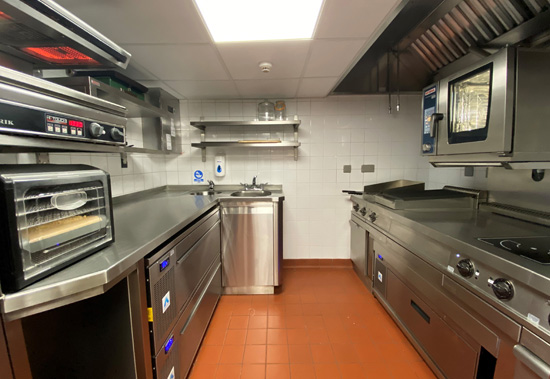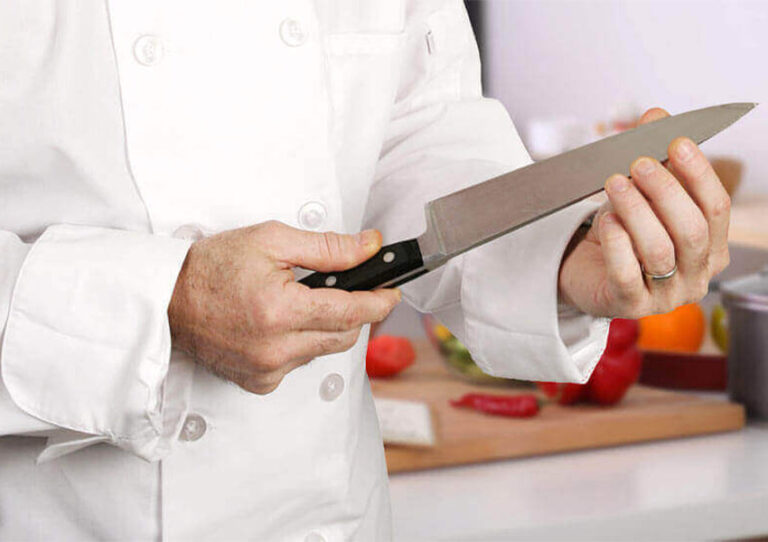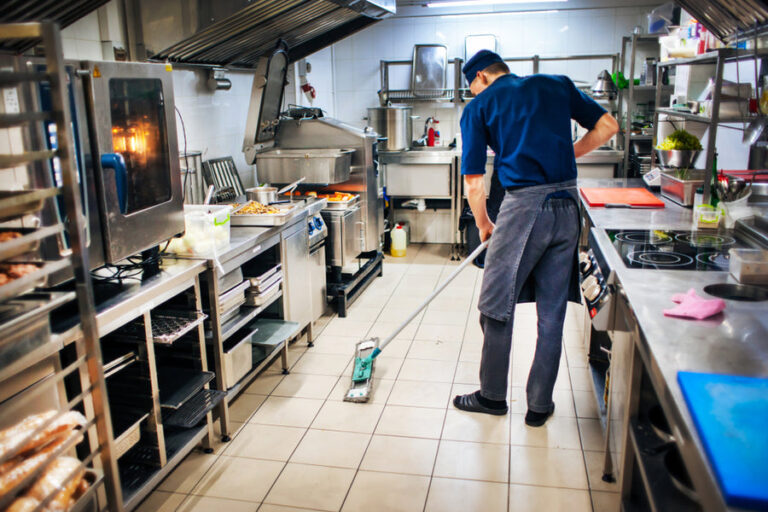What Are the Best kitchen safety tips:The Best for beginners(Explained)

Kitchen safety is making sure that you are taking the proper precautions to keep the kitchen safe. Keeping the kitchen safe involves practices such as using the correct cookware for the job, keeping your work area clean, and being aware of potential hazards like sharp knives, hot stoves, and slippery floors if not kept dry and free of trip hazards.
Cooking can be an enjoyable and rewarding activity, but it also comes with its risks, especially for beginners. Whether you’re just starting out in the kitchen or looking to refresh your skills, understanding and implementing kitchen safety practices is crucial.
Kitchen safety is a topic of utmost importance that often doesn’t get the attention it deserves. A kitchen, whether at home or in a professional setting, is filled with potential hazards such as sharp utensils, hot surfaces, electrical appliances, and slippery floors.
Cooking might be the way to someone’s heart, but it could also be the way to hospital. The number of accidents involving knives, boiling water, and deep-fat fryers is truly impressive. More than 67,000 children alone are injured in the kitchen in the UK every year, according to the Royal Society for the Prevention of Accidents, and that doesn’t include those adults who decide to deep-fry a whole chicken or put the bagel knife through their finger.
By understanding the importance of kitchen safety, we can respect the potential dangers, implement strategies to mitigate risks and create a safer environment for ourselves and our families. It’s an integral part of cooking and an important life skill.
I will walk you through how you will explore essential kitchen safety tips to help beginners navigate their way around the kitchen confidently and safely.
- Understanding Kitchen Hazards
Before diving into cooking, it’s essential to familiarize yourself with potential hazards in the kitchen. Common hazards include cuts, burns, slips, falls, and foodborne illnesses. By being aware of these risks, you can take proactive measures to prevent accidents and injuries. - Proper Handwashing
One of the simplest yet most effective ways to prevent foodborne illnesses is by practicing proper handwashing. Always wash your hands thoroughly with soap and warm water before and after handling food, especially raw meats, poultry, and seafood. This helps eliminate harmful bacteria and reduces the risk of cross-contamination.
- Using Sharp Knives Safely
Sharp knives are essential tools in the kitchen, but they can also be dangerous if not used properly. Always handle knives with care, keeping your fingers away from the blade. Use a stable cutting board to prevent slipping and ensure the knife is sharp to minimize the risk of accidents caused by dull blades.
- Fire Safety
Cooking-related fires are a common hazard in the kitchen, but they can be prevented with proper precautions. Never leave cooking food unattended on the stove, and keep flammable items such as kitchen towels and curtains away from heat sources. In case of a small grease fire, smother it with a lid or baking soda and never use water, which can cause the fire to spread.
- Preventing Burns
Burns are another common kitchen injury, but they can be avoided by practicing caution. Use oven mitts or pot holders when handling hot cookware, and be mindful of steam when opening lids or containers. Keep pot handles turned inward on the stove to prevent accidental spills or knocks.
- Avoiding Slips and Falls
Slips and falls can occur in the kitchen due to spills or cluttered floors. Keep the kitchen floor clean and dry at all times, promptly wiping up any spills. Use non-slip mats or rugs in areas prone to wetness, such as near the sink or stove. Additionally, avoid overloading countertops with appliances or clutter, which can create tripping hazards.
- Safe Food Handling
Proper food handling is essential for preventing foodborne illnesses. Always store perishable foods in the refrigerator or freezer promptly and at the correct temperature. Thaw frozen foods safely in the refrigerator or microwave, never on the countertop. When cooking, use separate cutting boards and utensils for raw meats and produce to avoid cross-contamination.
- Read and Follow Recipes
For beginners, following recipes is a great way to learn and practice cooking skills. However, it’s essential to read recipes carefully and follow instructions closely to ensure safe cooking practices. Pay attention to cooking times and temperatures, as well as any specific handling or preparation instructions provided.
- Clean Up Spills Promptly
Spills and messes are inevitable in the kitchen, but they should be cleaned up promptly to prevent accidents. Use a clean cloth or paper towel to wipe up spills immediately, especially if they’re greasy or slippery. Regularly clean countertops, appliances, and floors to maintain a safe and sanitary cooking environment.
- Practise General Kitchen Safety
In addition to the specific tips mentioned above, practicing general kitchen safety habits is essential for beginners. This includes keeping knives and other sharp objects out of reach of children, using appliances and equipment according to manufacturer instructions, and avoiding distractions while cooking.
If you follow these essential kitchen safety tips, as a beginner, you can enjoy cooking with confidence while minimizing the risk of accidents and injuries.
Remember to stay vigilant, practice good hygiene, and prioritize safety in all your culinary endeavors. With time and experience, you’ll become more comfortable and proficient in the kitchen while keeping safety a top priority.
Although, the above kitchen safety tips may be obvious, but they are the most important things to know when it comes to kitchen safety. Everyone needs some day-to-day best practices as a guideline to function well in the kitchen.
If you take all these recommendations into account, you will improve the safety of you and everyone else around you while working in the kitchen.
Whether you are cooking everyday meals or preparing for a holiday gathering, remember to keep these kitchen safety tips in mind to keep you and your family safe.
As you can see, the complexity and operation of modern equipment have the potential to cause injury – especially when factoring the human element, which is to err. Luckily, by educating yourself and others of the safety tips and risks will go a long way in reducing kitchen accidents.






